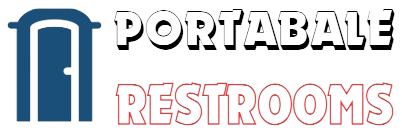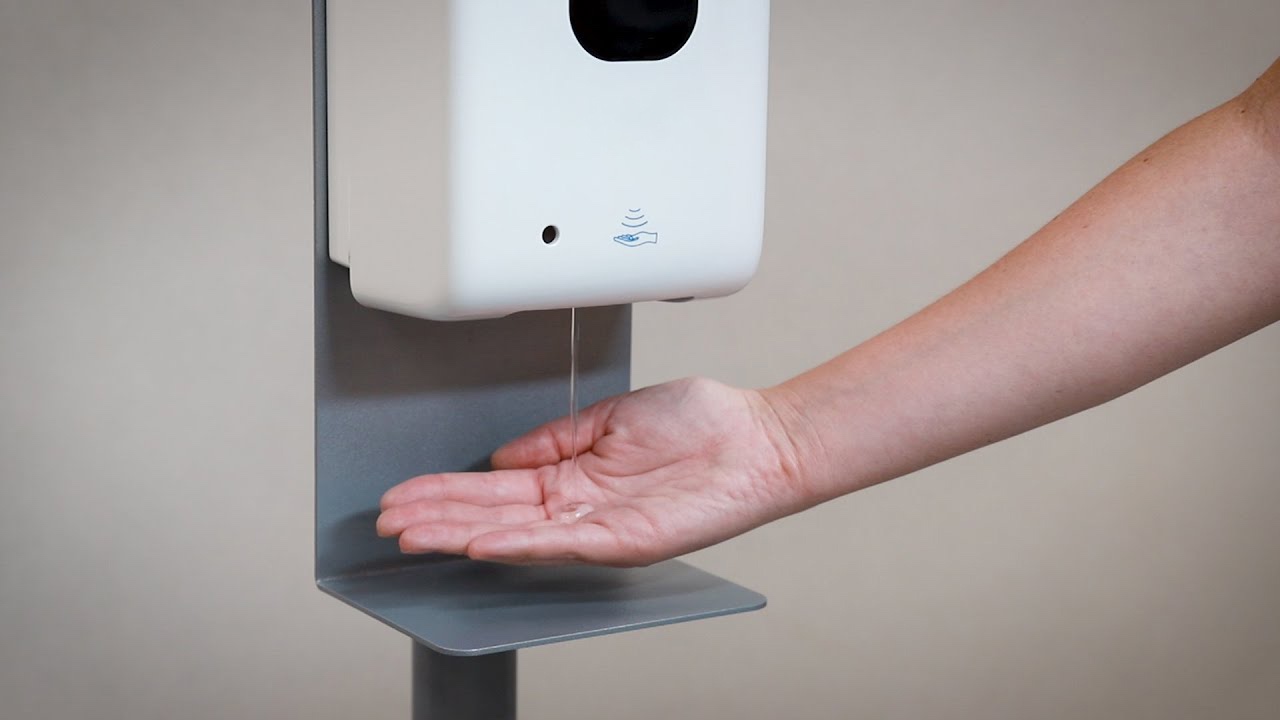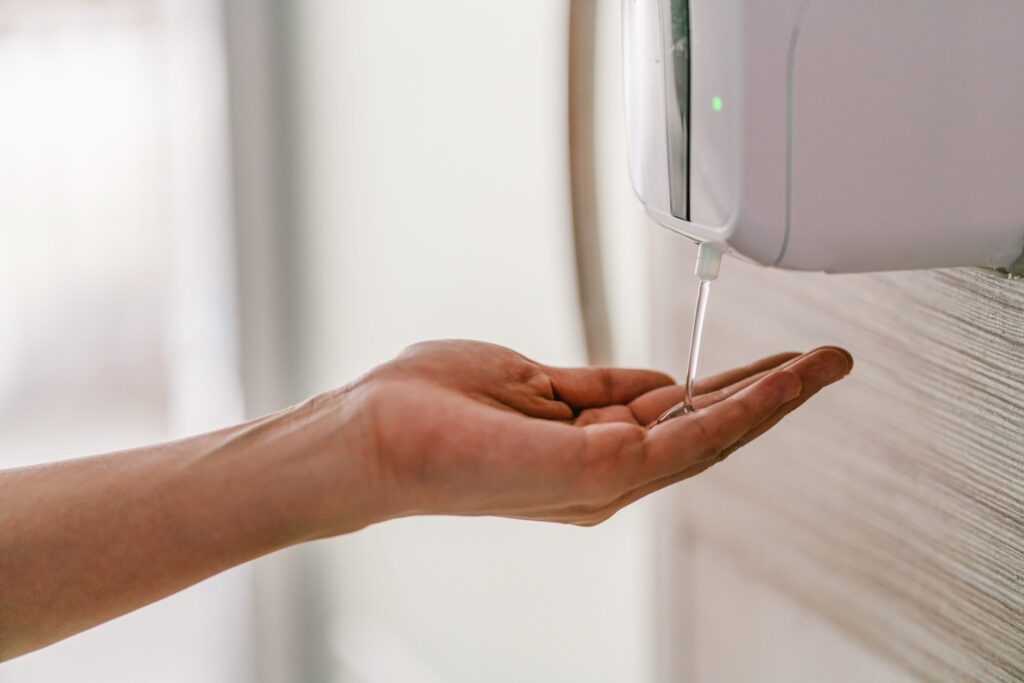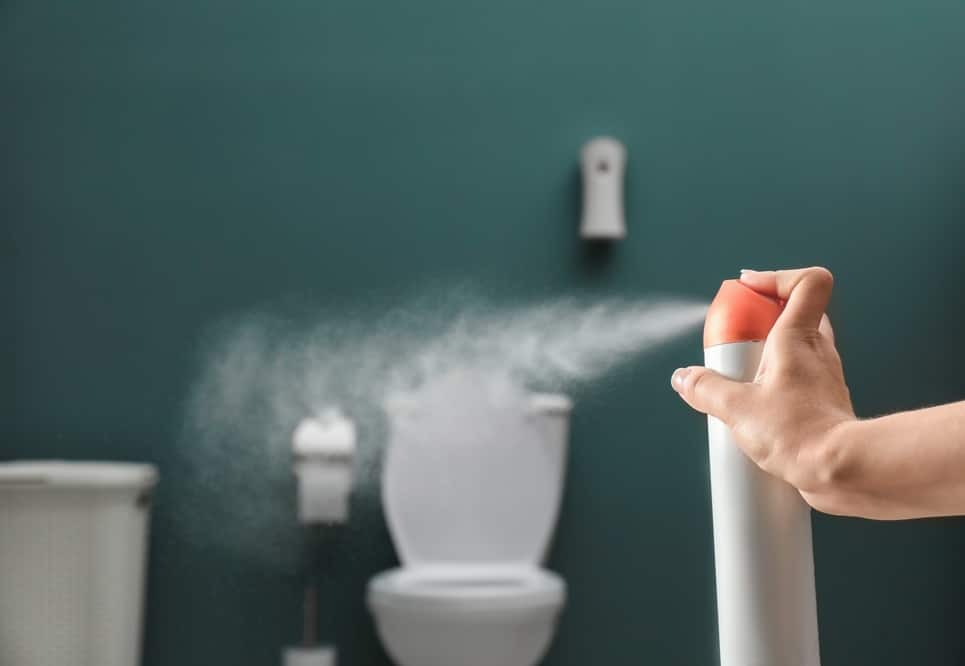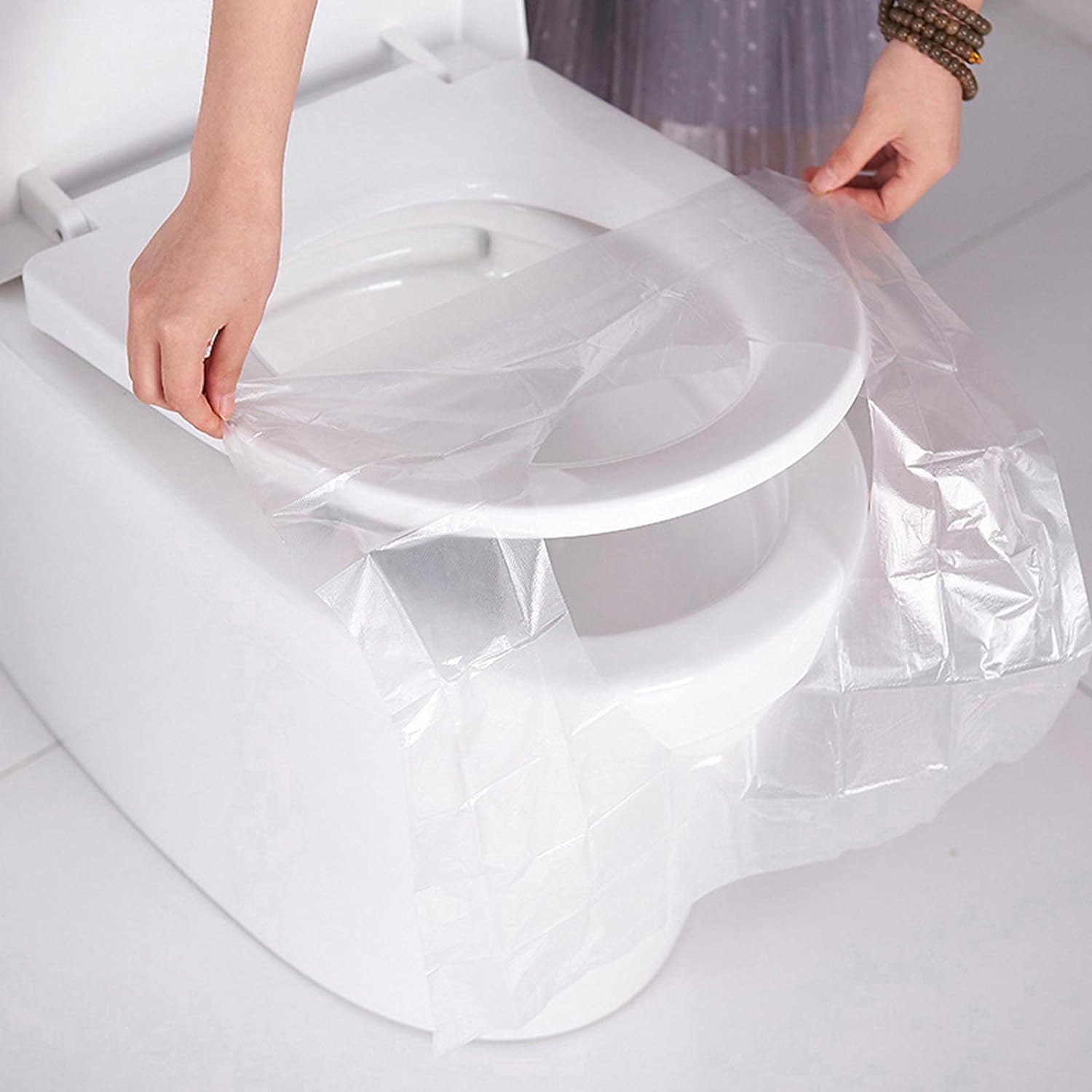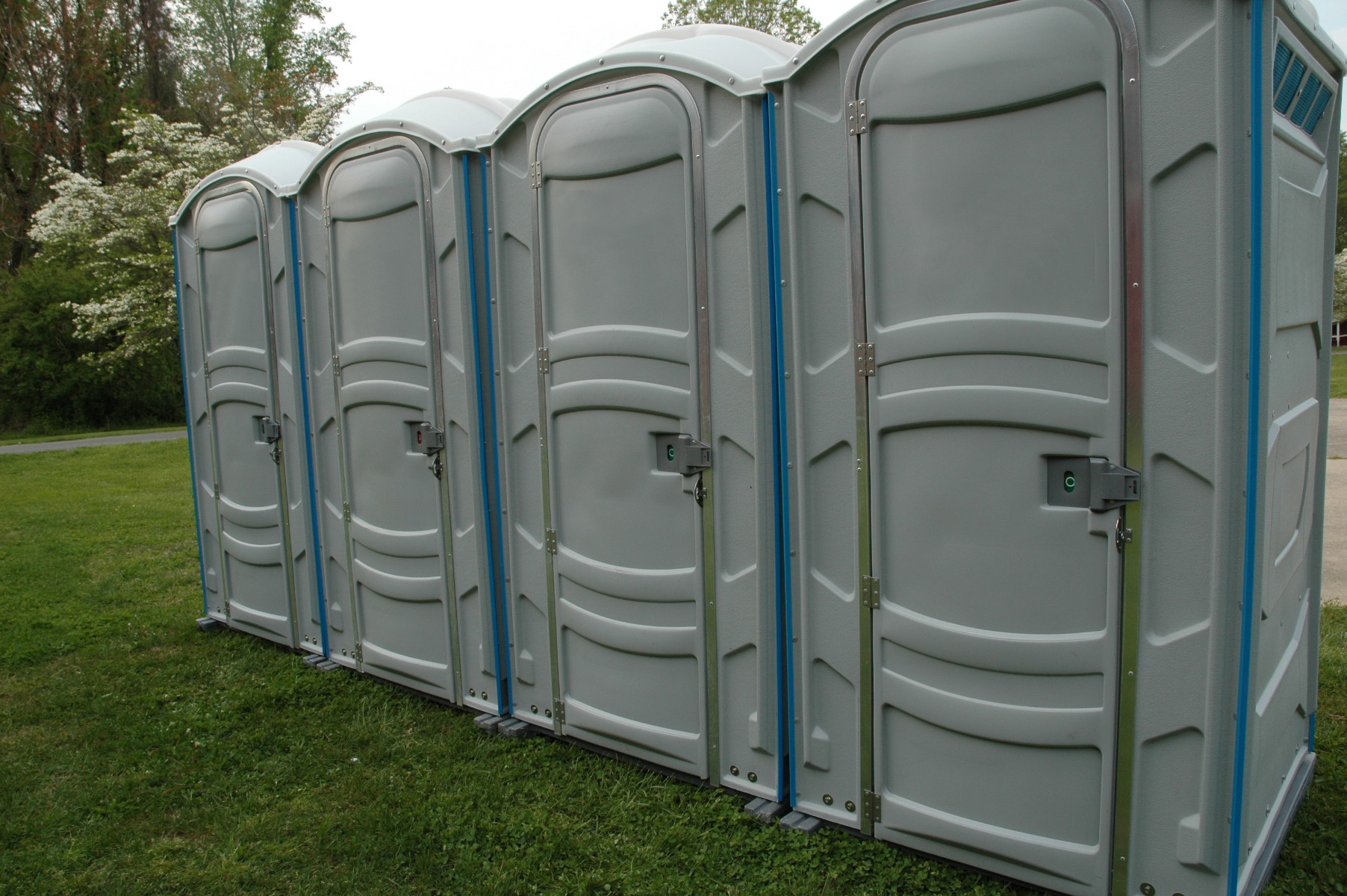Portable restroom rental and hand sanitizer are essential components of any event or construction site, ensuring proper sanitation and hygiene practices. In recent times, the importance of these facilities has been further emphasized due to the ongoing COVID-19 pandemic. For instance, imagine a bustling outdoor music festival where attendees gather in large numbers over several days. Without adequate portable restrooms and hand sanitizing stations strategically placed throughout the venue, maintaining cleanliness and preventing the spread of germs would become an arduous task. Therefore, it is crucial to understand the best practices associated with portable restroom rental and hand sanitizer usage to ensure optimal efficiency and effectiveness.
In order to achieve maximum benefit from portable restrooms and hand sanitizers, it is imperative to implement certain best practices. First and foremost, proper placement of portable restrooms is vital for crowd management and easy access. For example, at a construction site encompassing multiple work areas, positioning portable restrooms near each designated zone can minimize time wasted on traveling long distances for workers. Similarly, at events such as festivals or fairs, distributing portable restrooms evenly across the grounds ensures that attendees do not have to travel extensively to find sanitary facilities when needed.
Moreover, it is essential to maintain cleanliness within these facilities by employing regular cleaning schedules.
Choosing the Right Portable Restroom Rental
Choosing the Right Portable Restroom Rental
Imagine you are organizing a large outdoor event such as a music festival or a sporting tournament. One of the most crucial aspects to consider is providing adequate restroom facilities for your attendees. A lack of clean and accessible restrooms can lead to discomfort, dissatisfaction, and even health concerns among your guests. To ensure a successful event experience, it is essential to choose the right portable restroom rental that meets all your requirements.
When selecting a portable restroom rental service, several factors should be taken into consideration:
- Capacity: Determine how many restrooms will be needed based on the estimated number of attendees and their demographics. Consider factors such as peak usage times and any special needs, like wheelchair-accessible units.
- Quality: Look for reputable companies that offer well-maintained units with proper ventilation, lighting, and cleanliness standards. Reading online reviews or seeking recommendations from other event organizers can help guide your decision-making process.
- Amenities: Assess what additional amenities may be necessary for your specific event. This could include features such as handwashing stations, baby changing tables, or luxury trailers for VIP areas.
- Delivery and Maintenance: Ensure that the chosen rental company offers reliable delivery and regular maintenance services throughout the duration of your event. Prompt response times for repairing any issues that arise during the event is also crucial.
To illustrate further, let’s consider an example: Imagine you are organizing a three-day music festival expected to host 10,000 people each day in an open field venue without existing restroom facilities nearby. In this scenario, using inadequate portable restrooms would likely result in long lines, unsanitary conditions, and unhappy attendees who may not return next year.
In order to avoid these challenges and provide a positive experience for your guests at this hypothetical music festival:
- Optimize attendee satisfaction by ensuring there are enough restrooms available.
- Enhance hygiene and cleanliness by selecting a reputable rental service with proper maintenance protocols.
- Consider additional amenities like handwashing stations to promote good hygiene practices among attendees.
- Choose a reliable rental company that can deliver, set up, and maintain the restrooms throughout the event.
By considering these factors, you will be well on your way to choosing the right portable restroom rental for your event. In the following section, we will explore how to ensure cleanliness and hygiene standards are met, ensuring the comfort and safety of all attendees.
Ensuring Cleanliness and Hygiene Standards
Imagine a scenario where an outdoor event is taking place on a sunny day. The attendees, enjoying the festivities, require access to portable restrooms throughout the duration of the event. It becomes crucial for the organizers to prioritize cleanliness and hygiene standards in order to maintain a pleasant atmosphere and ensure the well-being of everyone present.
To achieve this objective, several best practices can be implemented:
- Regular Cleaning and Maintenance:
- Schedule frequent cleaning sessions during the event to remove any waste or debris from the portable restrooms.
- Ensure that all units are stocked with necessary supplies such as toilet paper, hand soap, and paper towels.
- Conduct routine inspections to identify any maintenance issues promptly.
- Hand Sanitizer Dispensers:
- Install hand sanitizer dispensers at each unit to encourage proper hand hygiene among attendees.
- Ensure that these dispensers are regularly refilled and accessible for everyone using the facilities.
- Clear Signage:
- Place clear signage near every portable restroom unit highlighting important instructions regarding cleanliness and hygiene practices.
Markdown bullet point list example:- Properly dispose of trash in designated bins
- Avoid littering around the area
- Wash hands thoroughly after using the restroom
- Report any maintenance concerns immediately
- Place clear signage near every portable restroom unit highlighting important instructions regarding cleanliness and hygiene practices.
In addition to implementing these best practices, it is essential to monitor their effectiveness by tracking metrics related to cleanliness and hygiene standards. This could include conducting customer satisfaction surveys or obtaining feedback from attendees about their experience with the portable restroom facilities.
By adhering to these guidelines, event organizers can create an environment where cleanliness and hygiene are prioritized, ensuring a positive experience for all participants. In our next section about “Proper Placement and Accessibility,” we will explore how strategic positioning of portable restrooms contributes further to attendee convenience and overall event success.
Proper Placement and Accessibility
Building upon the importance of cleanliness and hygiene standards, it is crucial to consider proper placement and accessibility when renting portable restrooms. By strategically positioning these facilities, you can ensure convenience for users while maximizing their effectiveness in various settings.
Proper Placement and Accessibility:
To better understand the significance of proper placement and accessibility, let’s explore a hypothetical scenario at an outdoor music festival. Imagine a large field with multiple stages where attendees will spend several hours enjoying live performances. In this setting, strategic positioning of portable restrooms can greatly impact user experience. Here are some key considerations:
- Location proximity: Placing restrooms near high traffic areas such as food vendors or main entrances ensures easy access without disrupting the flow of activities.
- Adequate signage: Clear directional signs leading to restroom facilities help attendees locate them quickly, reducing confusion and minimizing time spent searching.
- Separation from noise sources: Positioning restrooms away from loudspeakers or amplified sound systems provides users with a quieter environment that enhances comfort during use.
- Visibility and lighting: Well-lit restrooms that are easily visible even in low-light conditions promote safety and discourage vandalism.
Consider the following table highlighting how appropriate placement positively influences user satisfaction:
| Placement Strategy | Impact |
|---|---|
| Near busy areas | Convenient access for users |
| Visible signage | Reduced search time |
| Away from noise | Enhanced comfort |
| Good lighting | Increased safety |
By adhering to these best practices in terms of proper placement and accessibility, event organizers can create optimal restroom experiences for participants. These strategies aren’t limited to music festivals alone; they apply equally well to construction sites, parks, sports events, or any temporary gathering where portable restrooms are necessary.
Transition into subsequent section on Regular Maintenance and Inspection:
To ensure the longevity and functionality of portable restrooms, regular maintenance and inspection play a vital role. By implementing effective protocols for upkeep, you can guarantee that these facilities remain in excellent condition throughout their rental period.
Regular Maintenance and Inspection
Now that we have discussed proper placement and accessibility of portable restrooms, let’s turn our attention to regular maintenance and inspection. Ensuring the cleanliness and functionality of these facilities is crucial for providing a positive experience for users.
Regular maintenance and inspection are vital in keeping portable restrooms clean, hygienic, and fully operational. Let’s consider an example scenario where a company provides portable restroom rentals at an outdoor event. Throughout the day, attendees use the restrooms frequently, resulting in high traffic and potential wear-and-tear on the units. By implementing routine maintenance practices, such as cleaning, replenishing supplies, and inspecting for any damage or malfunctions, this hypothetical rental company can ensure a pleasant experience for their customers.
To effectively maintain portable restrooms, here are some recommended best practices:
- Frequent Cleaning: Regularly clean each unit with appropriate disinfectant solutions to minimize odors and promote hygiene.
- Supply Restocking: Ensure ample availability of toilet paper, hand sanitizer, soap dispensers, and other essential sanitary items.
- Inspection for Damage: Routinely inspect all aspects of the portable restrooms (e.g., doors, locks, vents) to identify any signs of damage or malfunction.
- Prompt Repairs: Address any identified issues promptly by either repairing them onsite or replacing damaged components when necessary.
It is also important to conduct periodic inspections throughout an event or project duration. Consider utilizing a table like the one below to keep track of these inspections:
| Date | Unit ID | Cleanliness Rating | Supplies Replenished |
|---|---|---|---|
| 2022/01/15 | PR001 | Good | Yes |
| 2022/01/15 | PR002 | Excellent | Yes |
| 2022/01/15 | PR003 | Fair | No |
| 2022/01/16 | PR001 | Excellent | Yes |
By maintaining a consistent schedule of inspections and adhering to the recommended practices mentioned above, portable restroom providers can address any issues promptly, ensuring that users are provided with clean and well-maintained facilities.
Transition into the subsequent section about “Effective Waste Management”:
Proper maintenance and inspection play a crucial role in upholding hygiene standards. However, effective waste management is equally important to ensure the overall cleanliness and environmental friendliness of portable restrooms. Let’s explore some best practices for managing waste effectively while minimizing its impact on both users and surroundings.
Effective Waste Management
Regular maintenance and inspection of portable restrooms are vital to ensure optimal cleanliness and functionality. By implementing a thorough routine, rental companies can uphold high standards of sanitation and provide customers with an enjoyable experience. For instance, consider the case of XYZ Rentals, a prominent provider of portable restroom solutions. They have successfully maintained their units through regular inspections and preventive measures.
To effectively maintain portable restrooms, the following best practices should be followed:
- Daily cleaning: Portable restrooms should be cleaned on a daily basis to remove any waste or debris. This includes emptying waste tanks, replenishing toilet paper and hand sanitizer, wiping down surfaces, and mopping floors.
- Sanitization procedures: Implement proper sanitization protocols by using approved disinfectants that kill bacteria and viruses commonly found in these facilities. Pay particular attention to frequently touched areas such as door handles, flush buttons, and sink faucets.
- Inspect plumbing systems: Regularly check for leaks or malfunctions in the plumbing system to prevent potential issues like overflowing toilets or clogged drains. Promptly address any problems found during inspections.
- Repair or replace damaged components: Conduct frequent assessments for damages or wear-and-tear on essential components like locks, hinges, mirrors, and vents. Swiftly repair or replace faulty parts to avoid inconvenience for users.
By adhering to these maintenance practices, rental companies can guarantee clean and well-functioning portable restrooms for their patrons’ satisfaction.
In addition to regular maintenance, effective waste management is crucial for maintaining hygiene within portable restrooms. Proper disposal of waste not only ensures a pleasant environment but also contributes to environmental sustainability. Consider the following table outlining recommended waste management strategies:
| Waste Management Strategies | Benefits |
|---|---|
| Implement recycling programs | Reduces landfill usage and promotes eco-friendly initiatives |
| Use biodegradable products | Minimizes environmental impact when disposing of consumables |
| Schedule regular waste pickups | Prevents overflowing waste tanks and maintains cleanliness |
| Educate users on proper waste disposal | Encourages responsible behavior and reduces potential issues |
These strategies, when integrated into the rental company’s operations, can have a positive impact on both the environment and customers’ overall experience.
Transitioning to the subsequent section about adhering to local regulations and permits, it is essential for portable restroom rental companies to ensure compliance with relevant guidelines. By understanding and following local regulations, these businesses can maintain their reputation while avoiding penalties or legal complications.
Adhering to Local Regulations and Permits
Effective waste management is crucial for maintaining cleanliness and hygiene in portable restroom rental facilities. However, it is equally important to ensure that all local regulations and permits are adhered to. Failure to comply with these requirements can lead to legal consequences, reputational damage, and potential risks to public health.
To illustrate the significance of abiding by local regulations, let’s consider a hypothetical scenario. Imagine a portable restroom rental company operating at an outdoor music festival. They fail to obtain the necessary permits from the local authorities due to oversight or negligence. As a result, they face unexpected fines and penalties during the event, disrupting their operations and tarnishing their reputation among both customers and industry peers.
To prevent such unfortunate situations, here are some key factors that should be considered when complying with local regulations:
- Permit Requirements: Research and understand the specific permit requirements for portable restroom rentals in your area. This may include obtaining licenses for waste disposal or wastewater treatment.
- Zoning Restrictions: Ensure that you are aware of any zoning restrictions related to portable restrooms in different locations. Some areas may have limitations on where these facilities can be placed or operated.
- Health and Safety Standards: Familiarize yourself with the health and safety standards set forth by relevant regulatory bodies or agencies governing sanitation practices. Regularly inspect your units for compliance with these standards.
- Environmental Considerations: Be mindful of environmental concerns associated with waste management from portable restrooms. Implement measures like proper containment systems, recycling options, or eco-friendly cleaning products whenever possible.
By following these guidelines diligently, you not only protect your business but also contribute to safeguarding public health and preserving our environment.
- Obtain the necessary permits
- Comply with zoning restrictions
- Adhere to health and safety standards
- Implement environmentally conscious practices
Markdown table:
| Factors | Importance |
|---|---|
| Permit Requirements | High |
| Zoning Restrictions | Medium |
| Health and Safety Standards | High |
| Environmental Considerations | Medium |
In summary, adhering to local regulations and permits is an essential aspect of operating a portable restroom rental business. By prioritizing compliance with permit requirements, zoning restrictions, health and safety standards, and environmental considerations, you can ensure the smooth operation of your business while upholding public health and environmental integrity.
